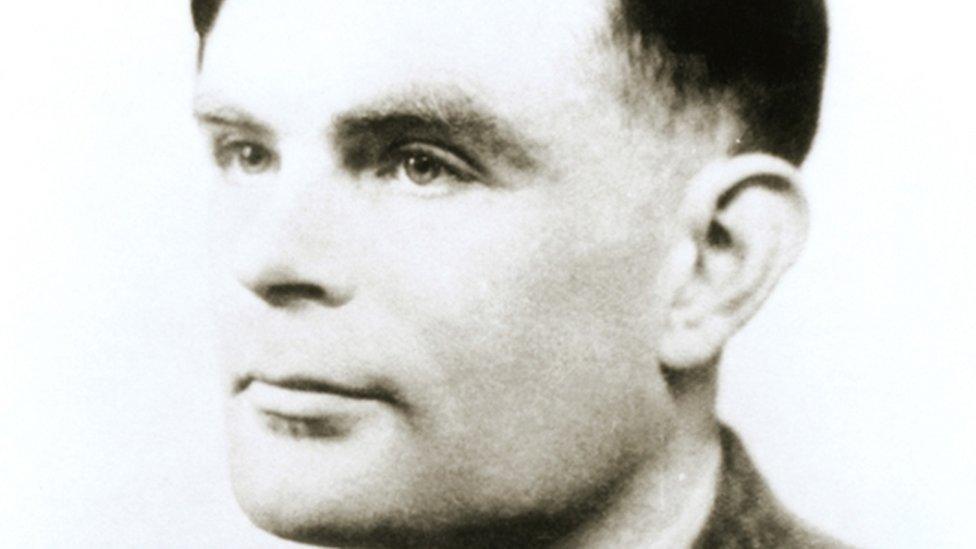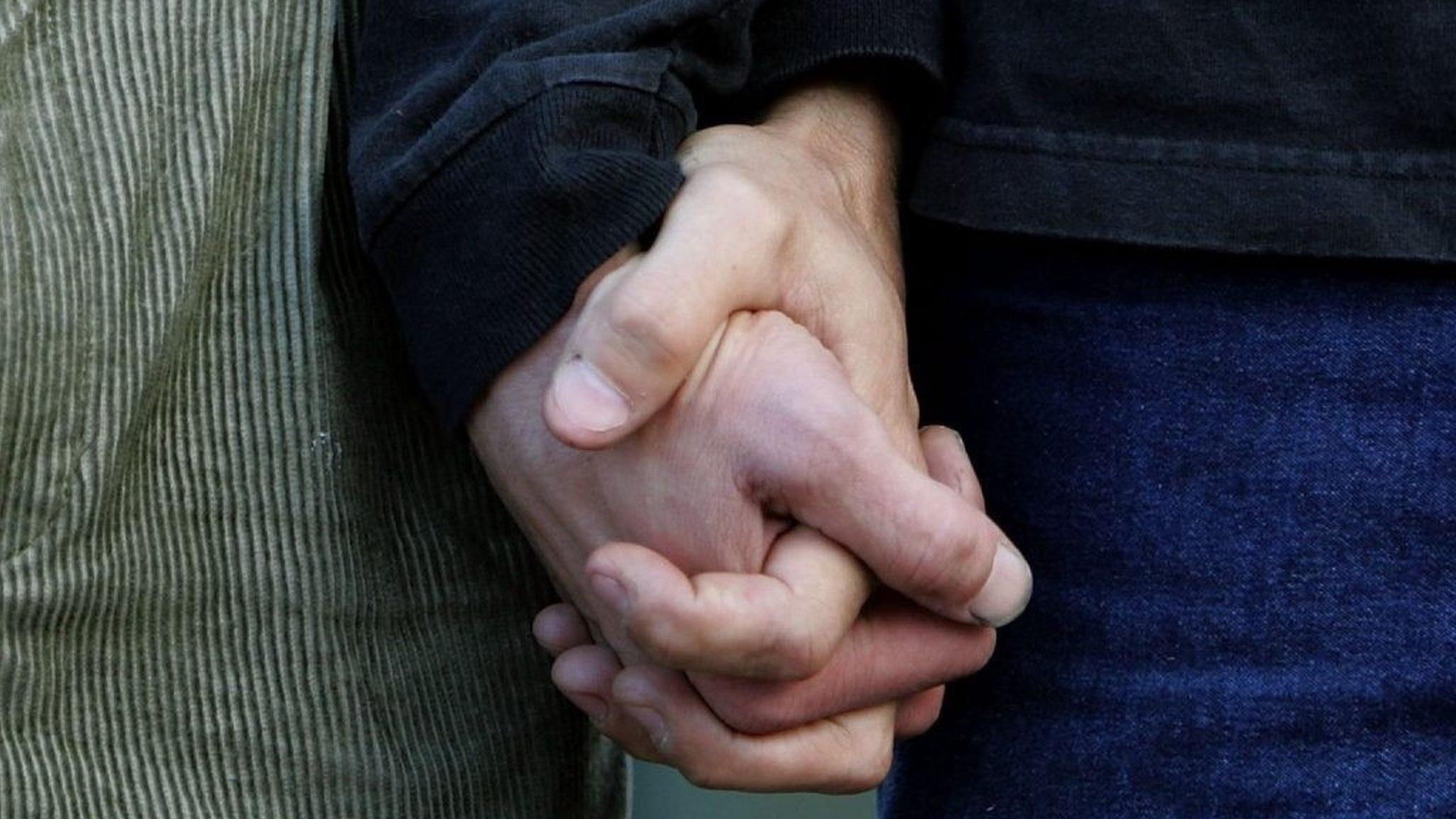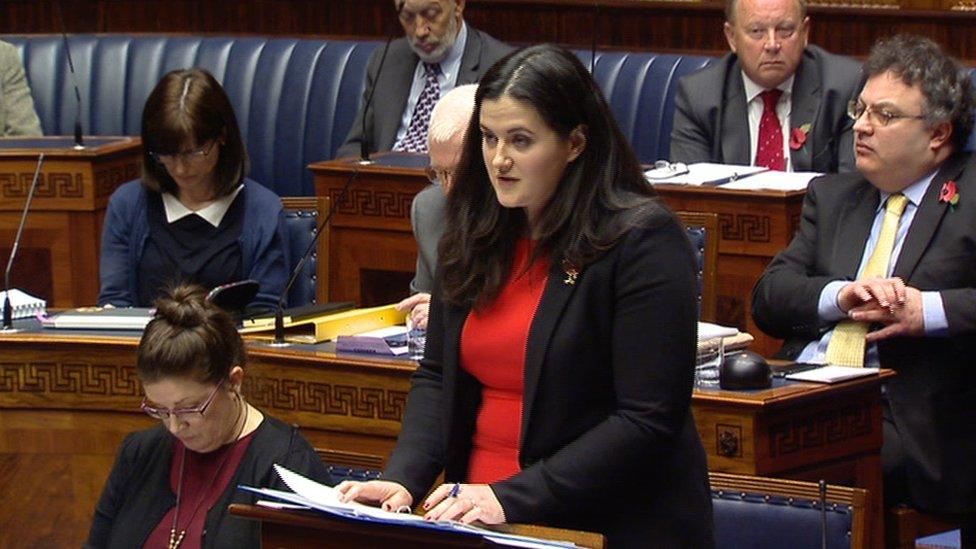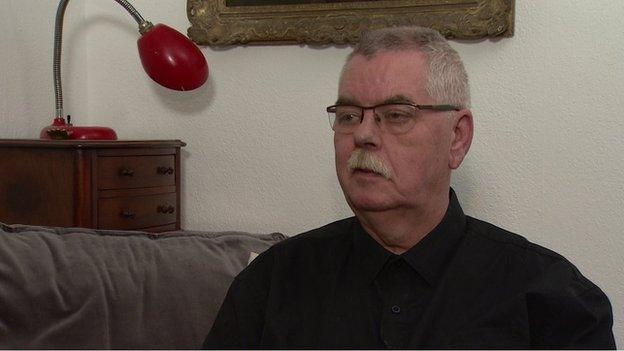Gay men in Northern Ireland offered access to pardons
- Published

Men convicted of abolished gay sex offences in Northern Ireland can now seek a pardon and have their record cleared.
The new law, which was approved by the assembly in 2016, comes into force on Thursday.
It brings Northern Ireland into line with England and Wales.
Convictions that are disregarded will be considered as never having happened and will no longer appear on criminal records.
It also means there will be no requirement to disclose abolished offences on job applications.
Those wishing to avail of the pardon will have to apply to the Department of Justice.
Posthumous pardons will automatically apply to anyone convicted of offences who have since died.

Alan Turing was pardoned in 2013, decades after his conviction for gross indecency
The law has been dubbed Turing's Law, after the World War two code-breaker Alan Turing.
The Rainbow Project, a Northern Ireland based LGBT support group, said it welcomed the new law.
John O'Doherty, the organisation's director, thanked the Department of Justice for working with the Rainbow Project on the new legislation.
"While the UK government will never be able to take back what it has done to gay and bi men, it can work to ensure the wrongs of the past will never be repeated," he added.
The new law is being introduced on the same day a DUP leader will attend an LGBT event for the first time.

DUP leader Arlene Foster attended a GAA match for the first time on Sunday
Arlene Foster has been invited, along with other Northern Ireland political leaders, to the Pink News Event at Stormont on Thursday night.
It is the DUP leader's latest piece of outreach work, following Mrs Foster's attendance at a GAA match last Sunday and a meeting with the Muslim community.
Northern Ireland Secretary Karen Bradley said work by all politicians to reach out to a range of communities was a "great thing and a good thing."
"I commend Arlene for what she's doing and I want to see more of that because the more that we can do and the more that we can show the politicians are working for all the people of Northern Ireland the better it will be to find that basis to get talks resume," she said.
- Published31 January 2017

- Published8 November 2016

- Published10 November 2016
